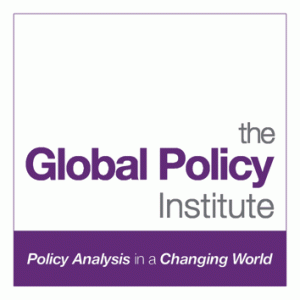Weimar Germany and Brexit Britain
Joint event with Global Policy Institute
31st May 2017
 Professor Austin Harrington is Associate Professor of Sociology at the University of Leeds. He has recently published a book entitled “German Cosmopolitan Social Thought and the Idea of the West: Voices from Weimar”
Professor Austin Harrington is Associate Professor of Sociology at the University of Leeds. He has recently published a book entitled “German Cosmopolitan Social Thought and the Idea of the West: Voices from Weimar”
 Professor Sam Whimster, Professorial Research Fellow at the Global Policy Institute and Editor of Max Weber Studies.
Professor Sam Whimster, Professorial Research Fellow at the Global Policy Institute and Editor of Max Weber Studies.
You can read Professor Whimster’s talk here:
Citizenship under attack – Some parallels between Weimar Germany and Brexit Britain
by Professor Sam Whimster, 9th June 2017
A note from Professor Harrington:
“This talk is based on a book I published last year, entitled German Cosmopolitan Social Thought and the Idea of the West: Voices from Weimar (Cambridge University Press, 2016). In the UK in recent months, many comparisons have been drawn between Weimar Germany and Brexit Britain. Some comparisons have even been made with aspects of Nazi Germany. A number of parallels do indeed suggest themselves – weaknesses of law and constitutional arrangements; economic turmoil and fragility; extreme private and public debt; erosion of institutions of social solidarity; weaknesses of the centre left; segmentation of social classes; anxieties of identity; fear of change; stigmatization of elites, experts and unwanted ‘others’; legacies of age-old institutions ill-adapted to a modern world; systematic organisation on the far right; ideologies of conservative modernity or anti-modernity; race hate crime and even political murder (Jo Cox).
In my talk, I will be concerned in particular with another significant parallel, namely the debate about the relationship between nationalism and national self-determination. Under the Weimar Republic many German intellectuals proclaimed a war of ‘protest at the West’ – a war for authentic German national Kultur over against the degenerate global Zivilisation of France, Britain and the USA. Other important German voices of the period advocated the establishment of a distinctively German national but non-nationalist liberal political identity. A similar tension exists in much of the current British debate about Brexit, a debate in which elements of nationalism, economic liberalism and globalism interact uneasily with each other. Against a background of social turbulence, what are the chances in this country for a non-reactionary bringing together of the national and the trans-national, of the local and the cosmopolitan? Will Brexit make this bringing together more likely, less likely or simply impossible?”





